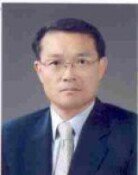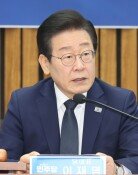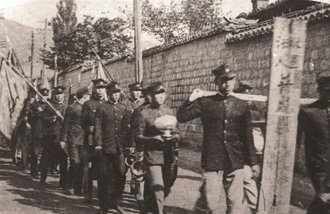Kissinger's view on strategies of six significant leaders
Kissinger's view on strategies of six significant leaders
Posted May. 27, 2023 07:45,
Updated May. 27, 2023 07:45
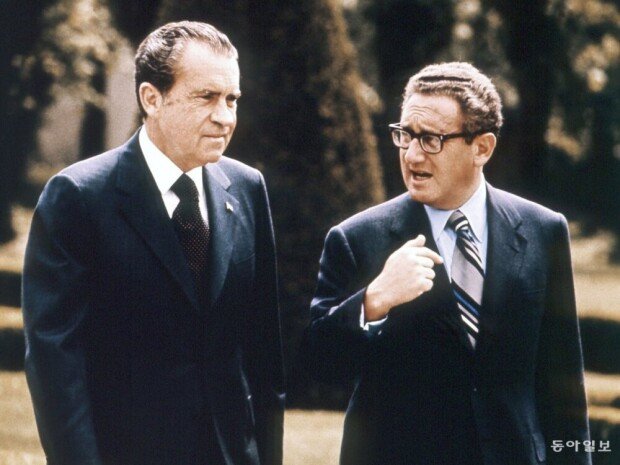
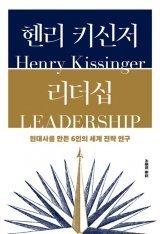
In a recent interview, Henry Kissinger warned that the U.S. and China are in a "classic pre-World War I situation" with potential conflict within the next 10 years. He also emphasized the disruptive influence of artificial intelligence (A.I.) on the current circumstances and urged for the prompt de-escalation of tensions regarding Taiwan.
His remarks made waves across major global media outlets, showcasing the enduring influence of the former U.S. National Security Advisor (1969-1975) and Secretary of State (1973-1977) on global politics even after half a century.
Henry Kissinger celebrated his 100th birthday on Saturday, marking a significant milestone in his remarkable life. Having experienced the hardships of Nazi Germany during his childhood, Kissinger and his family escaped persecution and found refuge in the United States. He later became a prominent figure in American diplomacy and national security, embodying a significant chapter in modern global history. In his 2022 book, Kissinger examines the influential leadership of six post-World War II figures and its relevance to our present global situation.
In his book, Kissinger presents a compelling framework for categorizing leaders into two distinct types: the Statesman and the Prophet. According to him, the Statesman pursues cautious yet transformative changes while preserving social identity, whereas the Prophet endeavors to transcend problems rather than simply managing them. Remarkably, the great leaders embody aspects of both types and adeptly utilize contrasting qualities as circumstances demand. Kissinger highlights that all six influential leaders he examines successfully transcended the challenges they inherited and pushed their societies to unprecedented boundaries.
Konrad Adenauer (1876-1967), the first chancellor of the Federal Republic of Germany, is associated with the "Strategy of Humility." Despite the prospects of German reunification being distant, Adenauer favored the integration of West Germany, laying the foundation for the economic miracle while facing domestic political opposition. On the other hand, Charles De Gaulle (1890-1970) of France is characterized by the "Strategy of Will." Leading Free France during exile, De Gaulle spearheaded not only political but also social rejuvenation within the country.
Kissinger attributed the "Strategy of Equilibrium" to Richard Nixon (1913-1994), the former U.S. President who appointed him the National Security Advisor. This strategy, which resonated with Kissinger himself, involved Nixon's 1972 visit to China and the initiation of ping-pong diplomacy to counterbalance the Soviet Union.
Former Egyptian President Anwar Sadat (1918-1981), who negotiated the 1979 Egypt-Israel peace treaty, embodied the "Strategy of Transcendence." Singapore’s first Prime Minister Lee Kuan Yew (1923-2015) embraced the "Strategy of Excellence," which was pivotal to Asia's economic development model. Former U.K. Prime Minister Margaret Thatcher (1925-2013) exhibited the "Strategy of Conviction" by revitalizing the nation's economy and restoring its international standing after the Falklands War, despite inherited challenges such as high inflation and the decline of its foreign policy power.
The author found that all six figures emerged from the new middle classes of the post-World War meritocracy, replacing the old aristocratic era. Kissinger observed that their shared background endowed them with the courage to challenge prevailing norms and a perspective that surpassed the conventional. Notably, they avoided pandering to popular opinion or relying on partisan rhetoric, unafraid to evoke political disagreement.
The book garnered mixed reviews upon its release. The Wall Street Journal hailed it as a modern classic akin to Paul Kennedy's "The Rise and Fall of the Great Powers." In contrast, the Guardian pointedly criticized Kissinger, stating, "Kissinger, who has never undersold himself, admires De Gaulle's gall," while highlighting the atrocities in the third world during Kissinger's time in office.
gustav@donga.com
Headline News
- Korean business leaders urge a halt to commercial law amendment
- Yoon begins extensive verification for cabinet and staff reshuffle
- Police confirm Pyongyang’s involvement in Ether heist in 2019
- Ukraine fires British Storm Shadows at targets on Russian territory
- Ulsan and Pohang compete to crown Korea’s soccer champions





